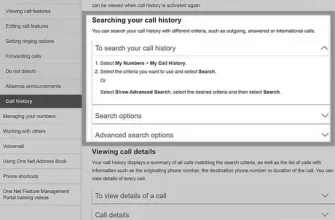If you’re wondering, «Can a woman get a divorce without her husband’s consent?» you’ve come to the right place. This article explores the reasons for filing for a fault-based divorce and tips for filing a divorce without your husband’s consent. You’ll also learn about the benefits and disadvantages of filing for divorce without your husband’s consent.
- Can a wife get a divorce without her husband’s agreement?
- Reasons for fault-based divorce
- Filing for divorce without a husband’s consent
- Getting a divorce without a husband’s agreement
- In New Jersey, a no-fault divorce is available if a marriage is irreconcilably broken down
- Marital property
- Spousal support
- Keeping separate households after a divorce
Can a wife get a divorce without her husband’s agreement?
A woman can get a divorce without her husband’s consent in some circumstances. This is particularly true of property acquired prior to the marriage. For example, a wife can obtain a divorce if she is the sole owner of property owned by her husband. If her husband refuses to participate in the divorce process, she can seek a court-ordered separation. In some states, such as North Carolina, a woman can file for divorce without her husband’s consent.
Divorce proceedings can be emotionally draining and tiring, but they are made all the more difficult by an unwilling spouse. Most people who want a divorce are ready to move on with their lives. However, dealing with a disgruntled partner can be a challenge. It leaves people angry, confused, and desperate. Here are some tips for handling this situation. A husband who refuses to sign the divorce papers is likely trying to save the marriage.
During the divorce process, the parties may need to exchange information, answer written questions, and give documents. Failure to comply with discovery requests can land you in trouble with the court. The divorce court will then notify both parties when the next hearing is. The number of hearings varies depending on the number of issues and timeframe. It’s important to know that a divorce lawyer is necessary for the process to proceed smoothly.
While the traditional methods of service are not always effective, alternative methods can be used to get the divorce papers served. These methods can include publication in a newspaper or other forms of public notice. In some cases, it’s also possible to post the divorce notice on Facebook, Twitter, and other social media. It’s important to note that in some cases, a lawyer is necessary, so it’s important to obtain independent legal advice.
In some cases, the wife doesn’t need her husband’s permission to get a divorce. This option is available in New York. The process is very similar to a regular divorce. The spouses must sign a separation agreement. Afterwards, they must comply with all conditions outlined in the agreement. Usually, a spouse has 28 days to respond to the divorce papers. If the spouse fails to respond, the court will grant a default divorce.
Reasons for fault-based divorce
The benefits of a fault-based divorce are many, but they come with a price. While no-fault divorces require a 90-day waiting period, fault-based divorces require one year of living apart. These types of divorces are best for couples who have experienced physical abuse or domestic violence. While the reason to choose a fault-based divorce will be discussed later, it is important to understand that this type of divorce will still be considered when dividing property and spousal support.
In addition to adultery, other reasons for fault-based divorces include a disagreement over the division of property. Virginia has a strong law against adultery. Regardless of whether you or your spouse are accused of adultery, you should make sure to review the provisions of your separation agreement. If adultery was a contributing factor in the breakdown of your marriage, you may be eligible for a fault-based divorce.
There are many fault-based grounds for divorce, but adultery is probably the most common. While adultery is the most common ground, it’s also the most difficult to prove. If you or your spouse is guilty of adultery, you’ll likely be barred from receiving support, and you’ll be barred from being married to a partner who committed adultery. Thankfully, there are other ways to establish adultery without proving your guilt — including other forms of evidence.

In addition to being a more difficult and time-consuming process, a fault-based divorce is also more expensive. The party claiming adultery should be able to provide evidence to the court. This is because proving fault rarely gives you a clear advantage in a divorce. However, it’s important to understand that the process of obtaining a fault-based divorce can take months or even years. You should know that there are many advantages to a fault-based divorce and that you should consider your options before making a decision.
Fault-based divorce is also more complex, and pinning the blame on the other person can be complicated. The process of determining fault can be lengthy and confusing, and can lead to unnecessary embarrassment. Furthermore, public accusations of adultery or other infidelity can lead to unwanted embarrassment for the other party. So, it’s important to find the right legal solution for your situation.
Filing for divorce without a husband’s consent
Filing for divorce without a husband’as consent is possible in all 50 states. The state where you’re residing will determine how to proceed. If you can’t locate your husband, you’ll need to file for divorce without his consent. You can get a divorce without his consent if you can prove that you’ve made a concentrated effort to find him. There are a few other steps you can take to avoid the hassle of getting a divorce without his consent.
While a refusal to sign the divorce papers will definitely affect the process, you still have a chance of obtaining the divorce you want. In most states, divorce proceedings are no-fault, so your husband or wife will not be required to sign the divorce petition. In such a situation, you can try to find a divorce attorney who will help you file for divorce without his signature. Your husband or wife will probably not cooperate during the divorce process if he is uncooperative.
Once you’ve filed for divorce without your husband’s consent, the next step is to find a way to serve your husband or wife. Often, this requires serving the divorce petition with a process server. The spouse then has 20 days to file a response to the divorce petition. If he doesn’t respond within that timeframe, the divorce will be considered uncontested. If you can’t find your husband or wife, you can always use the D.C. criminal court records to check whether your spouse has a criminal history.
If your husband does not want to sign the divorce papers, you should consider hiring a marriage counselor to help you. Using a counselor is a great way to find out if your spouse is being manipulative or not. Your spouse may not be willing to give up his/her property or children, and he may be trying to get a divorce without his or her consent. It’s important to consult with a divorce attorney if you think that your spouse is being manipulative.
If you do manage to serve your husband or wife without his or her consent, you’ll be able to get the divorce proceeding moving forward. The process can take several months, so it’s best to get a divorce lawyer as soon as possible. However, this does not mean that you can’t serve your spouse without him. There are three options to serve your husband or wife with a divorce petition:
Getting a divorce without a husband’s agreement
Getting a divorce without a husband is possible if both parties can agree to separate. Although it is faster and cheaper than a contested divorce, it does require a trip to court. Even if both parties can agree to separate, they still need to show that they’ve met legal requirements and obtained approval from the court. Getting a divorce without a husband’s agreement may involve mediation, which is a process where the parties can determine what they can agree on and which issues need to be resolved before the court. Some courts may require mediation if the couple cannot agree on the division of property, children, and debts.
Another option is negotiating your own separation agreement. You can present this plan to the judge, who will review it and approve it. Make sure the agreement satisfies all legal requirements. If your husband refuses to sign, you can always hire a lawyer to negotiate on your behalf. This will increase the pressure on him to agree to the terms. If you have a plan in place, the judge will be more likely to be receptive to it.

In order to get a divorce without a husband’s consent, you will have to file for a 1A divorce in your state’s Probate and Family Court. Make sure to obtain approval for an Affidavit of Indigency. The clerk will stamp the document. After you have signed the paperwork, the sheriff will deliver a copy of the complaint to your husband or wife. This process is called service of process. During the course of the case, you may need to get temporary orders until the case is resolved. Pre-trial conferences are also required, as is a trial.
Usually, divorce attorneys advise couples to seek legal representation before filing their paperwork. The court will consider the information in the forms and make a ruling based on the information they receive. A temporary order is usually issued four to six weeks after the papers are filed, and both parties must follow the orders until the divorce is final. There are a few ways to avoid this, but in the long run, it is the best option.
When the marriage breaks down irreconcilably, a wife can file for a no-fault divorce. In NJ, this divorce is entitled to spousal support and is no-fault in New Jersey. In this article, we’ll discuss Marital property, spousal support, and the right to maintain separate households. In addition, we’ll discuss how to obtain a judicial separation.
In New Jersey, a no-fault divorce is available if a marriage is irreconcilably broken down
If your marriage has irreparably broken down, you are eligible for a no fault divorce. To qualify, you must have lived in New Jersey for 12 consecutive months, had irreconcilable differences for six months, and separated for eighteen months. If your marriage has broken down, you may also be eligible for a no-fault divorce if your spouse abandoned you.
If you suspect your spouse of adultery, you should contact a divorce attorney. New Jersey divorce law recognizes nine grounds for divorce. In this case, your spouse must have abandoned your home for 12 months or been incarcerated for committing adultery, among other offenses. If you are concerned that your spouse has cheated, you can seek a no fault divorce if you have stayed in New Jersey for at least a year.
A no fault divorce is reasonable when the parties are not able to reconcile. In such a case, no evidence of misconduct is needed. In such a case, irreconcilable differences may be a cause of the divorce, but the divorce will be retroactive. No fault divorce may also be the best option if you’ve tried to reconcile, or if you’re not able to resolve the issues of child custody and visitation.
In New Jersey, a no fault divorce can be obtained if both parties agree to file for it. If you think that your spouse is causing you emotional distress, you can amend your complaint. If you find out that your spouse has been acting badly, you may want to withdraw your allegations. Luckily, if you’ve filed for divorce based on irreconcilable differences, you can amend your complaint. This may make the divorce process less difficult and you may be able to reach a settlement.
You can also file for a no fault divorce if you don’t find the spouse guilty of adultery. Connivance is a legal defense to a no-fault divorce in New Jersey. The court has ruled that connivance requires both spouses to have consent to the divorce. Generally, adultery is considered adultery if the actions of the defendant involved the spouse’s coercion.
Marital property
The question of «if a husband doesnt agree to a marriage dissolution, what does the wife get?» is a common one. When your husband refuses to sign the divorce papers, you must consider his motivations and decide how to respond. If your husband is unwilling to sign the divorce papers, you can legally challenge it. But be sure to consult an attorney first.

The court will try to enter a fair order that reflects the value of each party’s real and personal property. For example, a house may be awarded to one party and all other marital property to the other. However, if the two of you bought the house during the marriage, it is likely to be considered marital property. If the two of you have children, the home might go to the party who has custody of the children until they move out. The home will then be sold and the other party will get half of the equity.
Property division is not an easy process. The husband may try to stall or control the divorce process by refusing to sign the papers. He may agree to certain tasks but not complete them. He may even threaten suicide if the divorce process doesn’t work. A difficult spouse may also come to accept the divorce after some time. If you are able to overcome his resistance, you can reach a mutual agreement that is fair for both parties.
Spousal support
If a husband doesn’t agree to a divorce, what does a woman do? She files divorce papers requesting spousal support. However, if the husband won’t agree to this, the wife can ask the court to decide. A judge will set a hearing where both sides present evidence, and the court will make an order. If a husband refuses to agree to spousal support, he can be forced to pay it.
In most cases, if a husband doesn’t agree to a divorce, the wife will be awarded the assets and property if the husband doesn’t sign divorce papers. However, there are some situations in which the wife’s refusal to sign divorce papers will serve as leverage in securing custody of the children and assets. It’s important to consult an attorney if you suspect your spouse of manipulating you.
There are many reasons that a husband won’t sign divorce papers. Whether he wants to save the marriage or protect himself from the inevitable, a refusal to sign can complicate the divorce process. But, if your spouse refuses to sign divorce papers, you should be able to work with him to ensure that the process goes as smoothly as possible. You should also be prepared to explain why you want the divorce.
The next step in the divorce process is to attend a pre-trial hearing. This hearing is sometimes called a settlement conference. Some courts will ask couples to work with a mediator in the first place. The couple should bring documentation of their finances, debts, and property. The judge will tell the couple what they agreed on and will ask them to provide more information if needed.
A court will make an order based on the information on the divorce forms. A judge will also set a temporary order, requiring both spouses to follow these temporary orders until the divorce is finalized. During this time, the parties must adhere to these orders, which will often last four or six weeks. If a husband doesn’t agree to a divorce, what does a wife get?
Keeping separate households after a divorce
If your husband doesn’t agree to separate households, keep your children in the same home for the sake of your children. You can move back and forth between the households for as long as you want, but the children will feel less upset if they live with one parent. You can even spend their nights in separate rooms. Having a separate household can help you remain a good co-parent, even if your husband is not happy.
Keeping separate households after a divorce can be difficult if one of you earns less than the other. It is unrealistic to assume that after the divorce, costs will be much easier for the primary wage earner. For example, he may need to hire a lawn service, a handyman, and a housekeeper. The additional expenses may be beyond the primary wage earner’s means.
When calculating your living expenses after the divorce, it is crucial to understand all your financial resources. This includes any liquid assets and potential sources of debt. You should also know if you can borrow money or have cash on hand in case of financial difficulty. It might make sense to fight for the house if you intend to purchase out your spouse’s interest in the house in the future, or if you only plan to stay there for a few years.
If your husband doesn’t agree to separate households, keep in mind that you can still live in the house he already owns. However, if the house was purchased before the marriage, you can still keep it after the divorce. However, keep in mind that the house may become an asset and you will need to figure out who will pay for the mortgage and upkeep.








